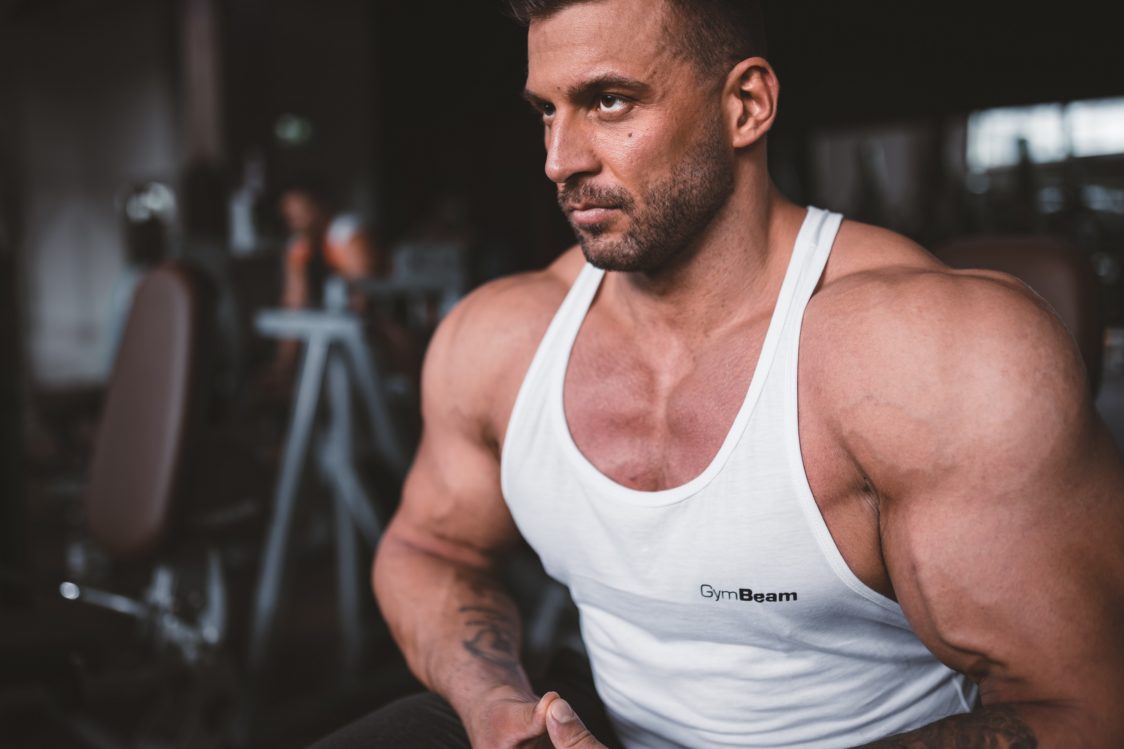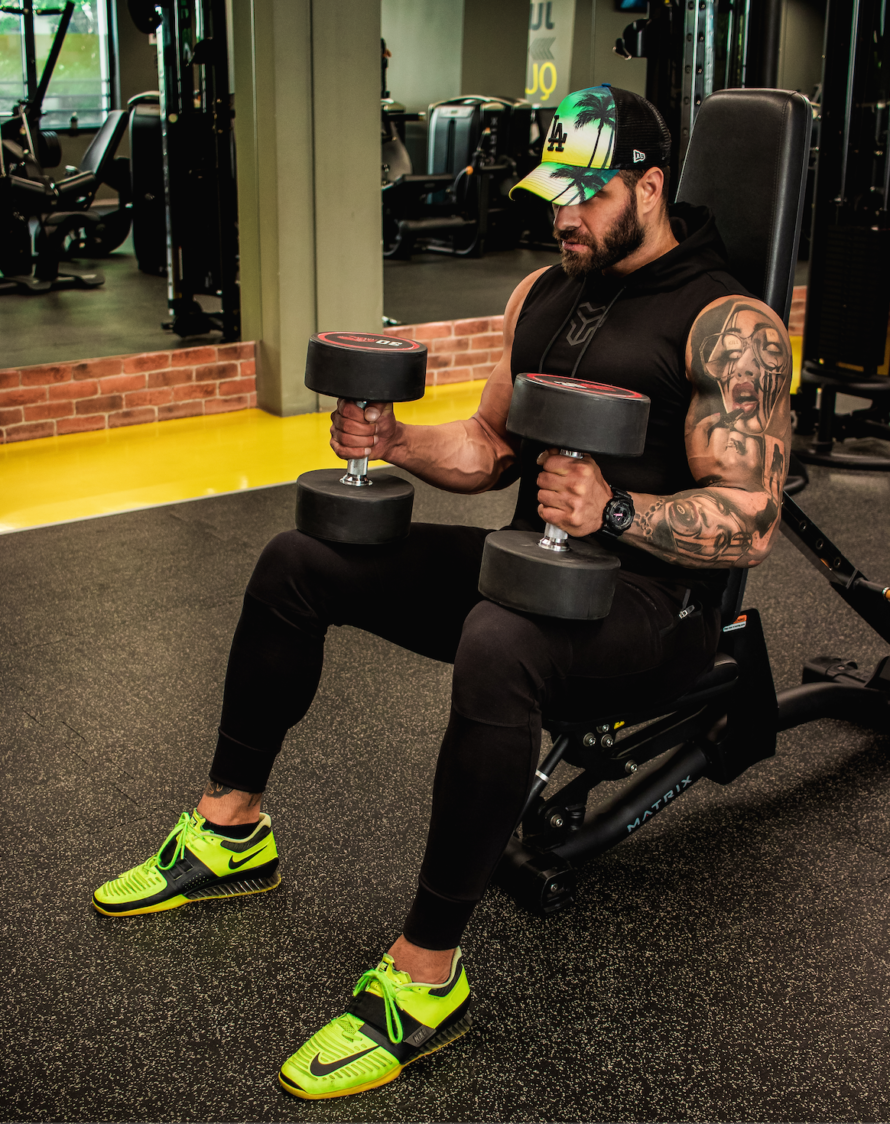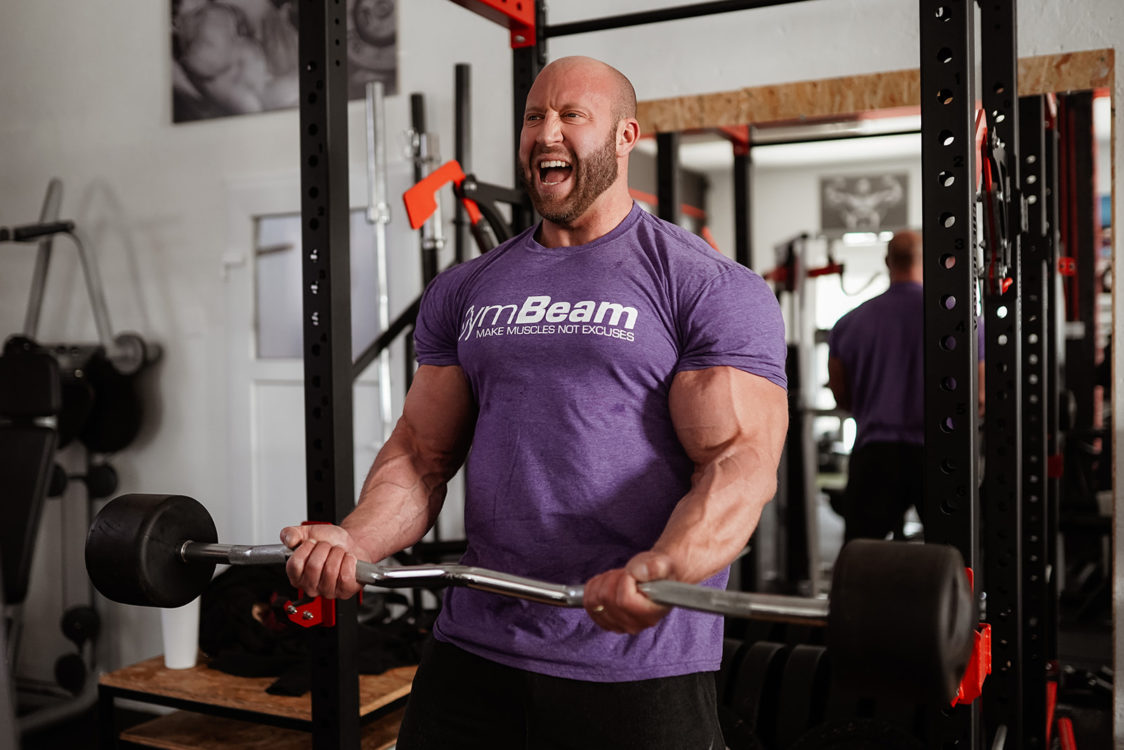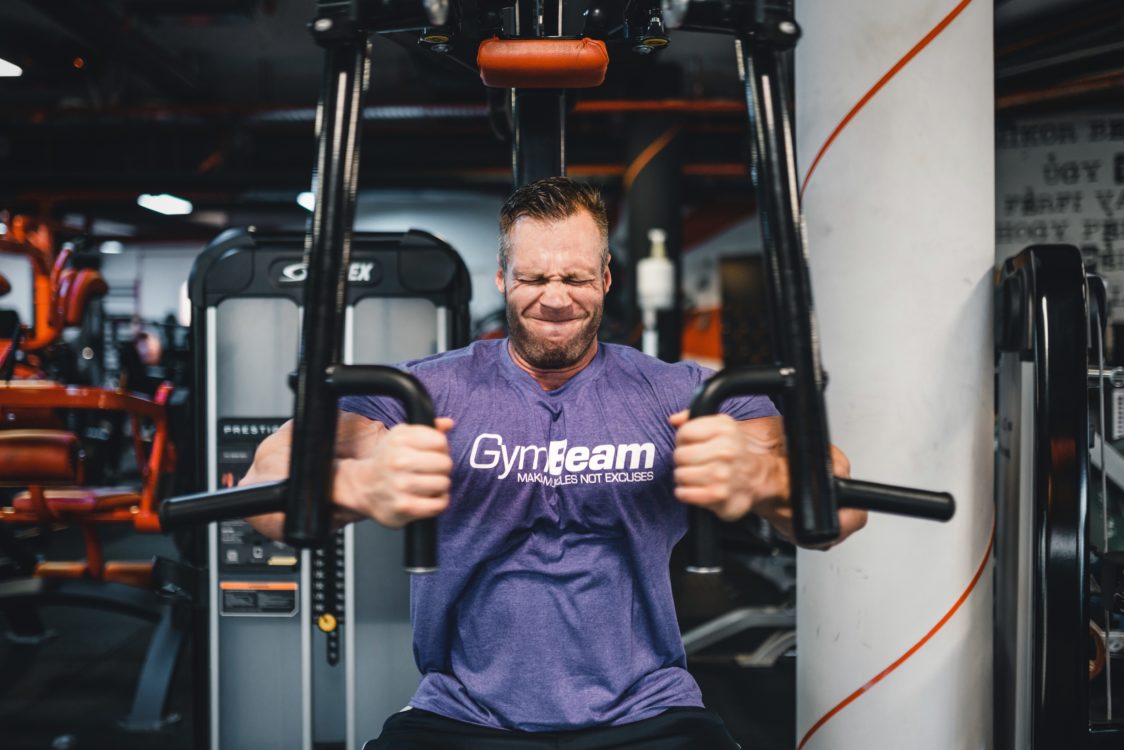Table of Contents
Workout mistakes are most often made by those who are just starting out with exercise and a healthy lifestyle. If you’ve been training for years, you probably think that you don’t have any issue with this. You know how to exercise correctly and you also understand the basics of a healthy diet.
If you really are in control of everything, we sincerely salute you. But what if I told you that you might still be making some basic mistakes that almost everyone makes? These missteps don’t affect only men, but also women.
9 workout mistakes made by almost everyone
Even with experienced athletes, it sometimes happens that their efforts are not enough and they make mistakes even after years of training. We will look at these below and add tips on how to fix them.
1. Using incorrect breathing technique
Many books on fitness emphasise the right technique, healthy diet and regeneration. Of course, all these pillars are extremely important, but many forget about breathing. This activity is automated and therefore people often don’t pay enough attention to it during exercise. People tend to unknowingly limit breathing at times when they perform strenuous activities such as heavy lifting, cycling or running.
These are activities that make the respiratory system work harder than usual. It needs more oxygen and must eliminate the accumulated carbon dioxide. Your body may react differently to the workout intensity you set for yourself. If it is too high, you may experience shortness of breath or chest tightness. This can cause a decrease in performance and ultimately lead to an ineffective workout. The intensity of training must therefore be adapted to your current fitness level. [1–2]
What to do about that?
The right breathing technique during exercise will help to supply the muscles with more oxygen, which will improve the performance. Another advantage is that proper breathing increases lung capacity and over time you will be able to handle more exercise with less effort. It is also necessary to mention that the capacity of the lungs increases the most during endurance training (cardio).
In the case of difficult and complex exercises, such as squats or deadlifts, the negative phase can be done whilst holding your breath, which can help you stay firm. During strength training, try to inhale during the lowering (eccentric) phase of the exercise and exhale during the lifting (concentric) phase, when your muscles engage. So, for example, when you’re doing a biceps curl, exhale as you raise the weights to curl, then inhale as you’re lowering. [3]
We covered this topic more in our article How to Breathe Properly When Running and Exercising, and Why Is It Important?

2. Switching your training programs too often
There are a number of effective training plans to choose from. There are also many great accredited courses that you can study in college. What does these two have in common? If you want to achieve higher education, you can pick specific subjects that you attend several times a week throughout the semester. This method is the best way to gain sufficient knowledge and manage to complete the whole course.
The same goes for exercise. You must give sufficient time and respect to the training process, including constantly pushing your own limits. Then you get to the point where your form starts to gradually improve. However, if you make changes before it happens, your progress will simply not show. That makes sense, doesn’t it? But many people still change their training plan on a regular basis. They switch from one guaranteed muscle growth training to another, and the same goes for weight loss.
What to do about that?
Once you start a training plan, stick with it. Do each exercise properly and remember about correct technique. Don’t skip workouts, because no progress will be made if you don’t do something long enough. It is recommended to stick to the chosen training plan for at least 8-12 weeks. And of course, bear in mind progressive overload. It is necessary to master it in order to improve. [4–5]
If you are not sure about your training plan, our article How to Create a Quality Training Plan – Tips, Workouts and the Most Common Mistakes can help you out.
You might be interested in these products:

3. Doing the same things over and over
The opposite of the previous point is having the same training plan all the time. It occurs after months of exercise, when your enthusiasm decreases along with efforts to improve. Training becomes a common habit, in which you get into a kind of comfort zone. You are not moving forward, you are not increasing intensity or weights and your training remains the same.
You just practice what you have to like a robot and then go home without any effort for progress. You are just one step away from joining those who have been training for years, but rarely experience any changes or improvements. However, you should know that this approach doesn’t lead anywhere.
What to do about that?
Your body needs a reason or impulse to become stronger or more resilient. If it can handle training stress with no issues, it will have no reason to improve. This can be easily avoided. Keep a training diary and record your journey.
4. Comparing your results to Instagram models
The opposite of the case above is that you have a well-put-together training plan, you have been training for some time and you are trying to improve. However, the problem arises when you start comparing your body to fitness models or celebrities.
You can see their photos on Instagram every day, which is gradually becoming something you compare your results to. The fact is, if you have a slimmer figure like Kayla Itsines, your buttocks will probably never be the same as Jennifer Lopez’s.
In addition to genetic predispositions, these people often have several years of training under their belt and they live a healthy lifestyle. That’s why you should bear in mind the time frame as well. They did not achieve the results in a few months either.

What to do about that?
You have to make peace with the body you were given. We mean its structure and genetics, which must be respected. Just strive to be the best version of yourself. Set your expectations accordingly. The world of Instagram and filters is set up so that everything looks flawless in it. However, the reality is sometimes completely different. Therefore, you should not compare your appearance and try to look like someone else. Be yourself and focus on your own results.
Your genetics also plays a big role in this regard. You may not be naturally predisposed to becoming a muscle mountain like Dwayne Johnson. However, this doesn’t mean that you cannot work with what you have. Don’t give up, improve your strength, try to lead a healthy lifestyle and the results will definitely come. [9]
5. Focusing on feeling the burn
You’ve probably heard from someone that a good workout needs to hurt and that muscles need to burn. Many people believe this and exercise to feel the burn because they take it as an indicator of muscle growth. For example, they think that if they don’t struggle with going down the stairs after an intensive training, something is not right.
Unfortunately, this is a very widespread misconception. This burning sensation is not a sign of a good workout. It is caused by hydrogen ions H+, which are formed together with lactate at high-intensity performance. As a result, there is a lack of oxygen in the muscles, which is important for the rapid generation of energy during exercise.
These ions locally lower the pH of your blood in the strained muscles, which in turn becomes more acidic. The result is burning in the muscles. However, it is important for you to know that this feeling does not stimulate muscle growth. Progressive overload, on the other hand, is the stimulus. [7]

What to do about that?
The key to muscle growth is progressive overload, plenty of protein, energy and balanced diet. Consistency is what separates those who achieve better and worse results over the years. A well-rounded training routine will literally force your muscles to grow. It does not give them a choice and they have to adapt to the increased intensity.
Therefore, instead of feeling the burn, focus on increasing the intensity, which may or may not be accompanied by the burning sensation. You can do this, for example, by increasing weights or making breaks shorter. Keep in mind, however, that increasing the load without controlling your movement may not produce ideal results. Therefore, it is important to exercise technically correctly and perform complete movements of each exercise. [8]
6. Focusing only on big biceps or round buttocks
Each of us has different goals. Someone exercises to be healthier, stronger, faster and feel better in their body. But then there are the guys, who just want big biceps or girls, who focus only on having a firm and round buttocks.
The result of this may be an asymmetrical figure which doesn’t look great. It’s nice to have big arms or a firm butt, but it’s much more important to work on the overall quality and improving your body as a whole.

What to do about that?
The solution is actually simple. Instead of favouring a specific body part, you should focus on a comprehensive exercise of the muscles of the whole body. Because only the development of all muscle groups will allow you to move on and improve not only your figure but also your strength. You can find a comprehensive plan for firming and shaping the buttocks and legs in our article How to Strengthen and Shape the Buttocks and Legs.

7. Doing your workout in the wrong order
You probably know that the key to success is regular exercise, a balanced diet and regeneration. But then there are the smaller details that also play a role in which direction your results go.
One of these details is the correct order of exercises. Where you place a particular exercise can affect the weight of the load, the number of repetitions or the correct technique.
What to do about that?
The golden rule is to lay out the exercises so that you complete the most demanding and complex ones at the beginning of the training.
That’s when you have the most energy to give it your best. Priority should be given to large body parts which require more complex exercises, thanks to which you target several muscle groups at once.
Therefore, it is a good idea to start with your chest first and leave the biceps until the second part of your workout. The same applies to the back, which may be followed by the triceps, or to the legs and shoulders. [10–11]
So, of course, you divide your training like this, priority should be given to exercises such as squats, bench presses or deadlifts. [10–11]
8. Not using the full range of movement
When you come to the gym and pay for a one-time entry, you probably wouldn’t be pleased if the receptionist came to you halfway through your workout and tell you that your time had expired. It’s obvious that you don’t want to do only a part of your workout, but all of it.
You should approach the range of your movement during each exercise the same way. This is the only way you can engage every muscle and get full results.
What to do about that?
During training, try to use the maximum Range Of Motion (ROM), i.e., from the full extension of the muscle to the contraction. This is the decisive factor for the correct execution of the exercise, which, of course, is followed by progress. Keep in mind that it is better to use smaller weights so you can use the full potential of ROM rather than to torment yourself with too heavy weights that will not allow you to engage your muscles correctly. [10] [12]
9. Doing exercises too fast
Although we live in a hectic time, everything worthwhile takes time. There is no exception to exercise, which should not resemble the ride of Vin Diesel in the film Fast and Furious. If you do the exercises too fast, the muscle groups will not get the chance to work as they should. Among other things, the time when the muscle is under tension (TUT = Time Under Tension), is also important. This forces your muscles to work harder and optimizes muscle strength, growth, and endurance. [10]
What to do about that?
To keep your muscles under sufficient tension to maximize your progress, you should slow down each rep. At the same time, try to devote more time to the more difficult phase of the exercise. This is, for example, lifting the dumbbell when doing a biceps curl. By slowing down, you keep the muscle under tension longer, which can then give you better results. And of course, don’t forget the full range of motion from the previous point. [13]

Conclusion
Whether you are a beginner or a pro, even after years of practice, there may be mistakes or weaker points in your training that can be improved. Therefore, be careful and pay attention to the above-mentioned tips that will help you maximize progress, gain muscle mass or maximize your strength. Focus mainly on long-term sustainable results.
[1] Karen L. Smith-Janssen - 4 Breathing Mistakes You're Making Every Day – https://www.prevention.com/fitness/a20476969/4-breathing-mistakes/
[2] Emily Cronkleton - 9 Tips for How to Breathe Better While Running – https://www.healthline.com/health/exercise-fitness/how-to-breathe-while-running#tips-for-breathing-better
[3] Jessica Theifels - Breathe for a Better Workout – https://www.aarp.org/health/healthy-living/info-2017/breathe-exercise-workout.html
[4] Jonathan Ross - 4 Strength Training Mistakes – https://www.acefitness.org/education-and-resources/lifestyle/blog/3733/4-strength-training-mistakes/
[5] How Should One Alternate Their Workouts To Avoid Adaptation? – https://www.bodybuilding.com/content/how-should-one-alternate-their-workouts-to-avoid-adaptation.html
[6] MISTAKES PEOPLE MAKE IN THE GYM (EVEN AFTER YEARS OF TRAINING) – https://uksportstraining.com/blog/mistakes-people-make-in-the-gym-even-after-years-of-training/
[7] 3 Strength Training Mistakes For Athletes To Avoid – https://powersourceleominster.com/blog/99858/3-Strength-Training-Mistakes-For-Athletes-To-Avoid
[8] James Kohler - Overload and Force Your Muscle To Grow! – https://www.bodybuilding.com/fun/jamesk4.htm
[9] Stella Katsipoutis - 8 Reasons Why Your Butt Workout Isn't Giving You A Killer Booty – https://www.womenshealthmag.com/fitness/a19931144/butt-workout-not-working/
[10] Daniel Masters - 19 Common Gym Mistakes to Avoid – https://mastersfitness.co.uk/19-common-gym-mistake/
[11] Jack Dawes - Does Exercise Order Matter? – https://www.askmen.com/sports/bodybuilding/does-exercise-order-matter.html
[12] Eric Brosers - The 8 Worst Training Mistakes That Will Limit Your Back Gains – https://www.mensjournal.com/health-fitness/8-worst-training-mistakes-will-limit-your-back-gains/
[13] Emily Cronkleton - Time Under Tension Workouts: Are They More Effective? – https://www.healthline.com/health/exercise-fitness/time-under-tension


Add a comment